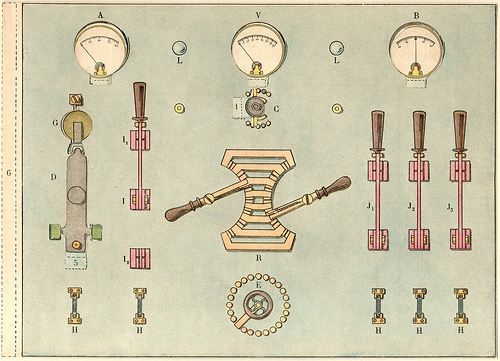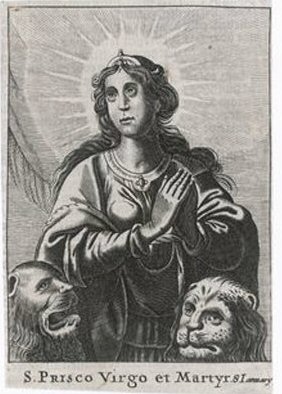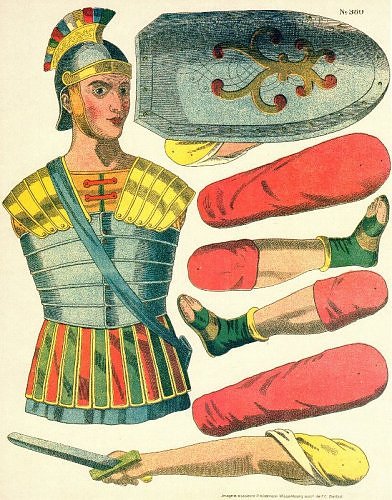There were barrage balloons in the sky on the morning when I decided to mesmerise a swan. I had been thinking of doing so for some time, for months in fact. The idea of having so savage a bird as a swan within my power enthralled me. Gerard Manley Hopkins famously mesmerised a duck, on the twenty-seventh of April 1871, but I was going to go one better, and entrance a large white swan. I filled my pockets with pebbles, and pranced towards the pond, where I fully expected to find a few swans swanning about, one of which I would choose as my mesmeric subject swan. I looked up at the barrage balloons, wondering why there were so many of them, in huddles, just below cloud level. Was that the correct altitude for barrage balloons? I knew not.
I had neglected, that morning, to wash my hair, and I am afraid to say that it was disgustingly greasy as a consequence. And a further consequence was that as I made my way towards the pond I was jeered at by a little tangle of hoodies, who used the greasiness of my hair as a pretext to abuse me. I suspect that, had I washed my hair, they would have lit upon some other feature, my carriage or my garments or the scars on my face where I had been bitten by birds. Now, I have always found that the most effective way to deal with hoodies and similar riffraff is to visit upon them sudden, ferocious and inexplicable violence. So packed with pebbles were my pockets that I had no room, that morning, for hand grenades or pepper-sprays or petrol-soaked rags, so my usual avenues of hoodie-terrorising were closed. Instead, I ran at them, whirling my arms and screeching as loud as a sedge of bitterns. The bittern is one of the noisiest birds in the avian panoply, and its loud, booming call is one of the farthest travelling of all bird songs. The male calls relentlessly both day and night from deep within his reed bed, hoping to attract a female into his territory. My purpose, of course, was to repel rather than to attract, and in this I was successful. The hoodies fled from me, as I expect you would have done, for when I am frightening I am very frightening.
Composing myself, I turned back to the path and continued towards the pond. It was a fine pond, as ponds go, the shape of a frying-pan when viewed from above, as I had viewed it many times, from hot air balloons and aerostats. It is many years now since I have been aloft. My physician identified a peculiar substance in my head which throbbed and became inflamed if I travelled much above sea level, so I took her advice, moved to a flat part of the country, and, with some regret, curtailed my aerial exploits. I feared that my close study of birds would be in jeopardy now I was forced, for medical reasons, to hunker close to the ground, but it soon became apparent that I still had numberless ornithological opportunities, given that many birds stick pretty close to the ground themselves, a lot of the time, swans among them.
To my utmost dismay, upon arrival at the pond I saw no swans at all. This was most unusual, but I rapidly connected the absence of swans to the sight of black and yellow police tape reeled all the way round the pond, fastened to what I hoped were temporary perpendicular metal poles. Sometimes police tape is blue and white, and sometimes, as on this occasion, it is black and yellow. My idle fancy has always been that the latter colours are picked by a police bee enthusiast, but I am sure there is a more sensible reason. I certainly wanted to know the reason for the appearance of the tape on the very morning when I planned to mesmerise a swan, and I looked around for a police officer whom I could bombard with questions. At the far side of the pond I was delighted to see PC Nisbet, who was known to me personally. We belonged to the same branch of the Beige Cardigan And Trousers club, and often sat within shouting distance of each other at club picnics. I shouted at him now, using my bittern boom, though in a friendlier way than I had deployed it against the hoodies, and saw PC Nisbet cover his ears in shock. My, what large, irregular ears the man had! If he had been unfortunate enough to be born in an earlier and more brutish age, his ears would surely have been exhibited by a mountebank for money. I think he must have had a specially modified police helmet to accommodate them, but if so it was a very clever modification, not apparent to a casual observer.
I did not want to have to boom my catalogue of questions across the pond, so I began walking around it, towards the PC, and he too began walking in his policemanly way towards me, so we met up halfway, where there was a kiosk selling refreshments. I plumped for a tin of Squelcho!, and PC Nisbet, who confessed to being peckish, bought a tub of boiled fish-parts. We settled on a bench next to the kiosk, but before I could ask him about the police tape and the absence of swans, he remarked upon the disgusting greasiness of my hair, and I had to explain that it had gone unwashed that morning as I was pressed for time. After upbraiding me, and giving a long-winded alarum about the dangers of excess grease in the hair, he began babbling about the barrage balloons, which still loomed in the sky above us. I was impatient to change the subject, but PC Nisbet was a fiendishly difficult man to interrupt, for he never seemed to need to pause for breath, the words tumbling out of his mouth one after another like bats from a cave. Somehow he was managing to eat his boiled fish-parts at the same time, which made his jabbering even harder to understand than usual. I began to despair, and wondered if I could stop him by pretending to swoon, so I dropped my Squelcho! and toppled off the bench into the muck at the pond’s edge. This had the desired effect, although it meant that the grease in my hair was now mingled with mud, beetles and slime.
“Why is police tape reeled around the pond and where are the swans?†I rapped, as I clambered back on to the bench.
PC Nisbet took a deep breath and rebabbled. He told me that a terrible crime had been committed and that shortly forensic officers in skindiving equipment would arrive to drag the pond. The swans had been removed to what he called a place of safety. I wanted to know where this was, so I could pursue my swan mesmerisation plan without further delay, but the PC claimed not to know. Before dawn, he said, a squadron of bird management officers, trained in swan removal techniques, had descended upon the pond and removed the swans, using the techniques in which they had been trained, but where the swans had been removed to, and if or when they would ever be returned to the pond, and if indeed the place of safety was truly safe, for swans, these were matters it was thought best not to divulge to an ordinary copper.
From his fantastic ears to his unstoppable jabbering, there was little that was ordinary about PC Nisbet, but I took his point. If I were put in charge of a pond crime and attendant swan removal, I would not see the need to tell every last detail of the operation to a lowly functionary. But clearly I needed to eke from PC Nisbet the name and whereabouts of the officer in charge of the case. After much more babbling, I learned that this was Detective Captain Cargpan, and that he was, at that very moment, back at the station roughing up a malefactor. I bid PC Nisbet farewell and set off hotfoot for the station.
I was puffed out when I got there, and when I slumped against the front desk, was outraged to find myself placed under immediate arrest by the desk sergeant, a florid character with the eyes of a pig and the nose of a crow. I protested that I was a fine upstanding member of the local community and a committee member of the Beige Cardigan And Trousers club, to no avail. Snapping a pair of manacles on me and shoving me into a cell, the florid sergeant told me he was arresting me for entering a police station with grease, mud, beetles, and slime in my hair, and for probably having something to do with the appearance of untold numbers of barrage balloons in the sky that morning. My request to send a desperate, heartfelt message to David Blunkett by metal tapping machine was met with a punch on the side of my head. This dislodged at least one of the beetles from my hair as the cell door clanged shut.
What a predicament! I had got out of bed that morning with the innocent intention of mesmerising a swan, and now I found myself locked up in a grimy police cell and quite possibly due to be bashed about by Detective Captain Cargpan. I would have to admit the first charge, of course, but how would I be able to prove that I had nothing to do with the barrage balloons? I fretted and fumed, and then I remembered the pebbles packed in my pockets. So eager had the desk sergeant been to bang me up that he had not bothered to search me and to confiscate my pebbles. I realised that if I deployed them in a very clever way, I would not only be able to avert a roughing up by Cargpan, but I might very well manage to escape the police station entirely.
There are thousands of very clever things one can do with pocketfuls of pebbles. That is the title, more or less, of an invaluable but out of print pamphlet by Dobson, which I have read many times, and have almost by heart. For example, my pebbles were an essential part of the mesmerising of a swan, which is why my pockets were packed with them. Now, though, they would have to serve a different purpose. Having devised my very clever scheme, I did not waste a second, and deployed the pebbles accordingly. Ten minutes later I was scampering along the winding lane from the police station into the forest, a free man again. I made my way to the densest part of the woods, where the foliage was so thick that I could no longer see the sky. Nor, as a result, could I see the barrage balloons, and this afforded me some relief. Their looming presence had cast a pall over the morning.
I was famished, and hankered for kippers, but I had to make do with berries and grubs. How long would I have to remain in hiding? I was sure that Cargpan would send a gaggle of bluebottles to flush me out. I had used all my pebbles in escaping from him, and the forest floor duff was singularly lacking in further pebbles. I ate some more berries and grubs and racked my brains for a plan, but I could not stop thinking about kippers. I wished I had bought a spare tin of Squelcho! back at the kiosk, for I was thirsty as well as hungry. I sucked some moisture from a leaf. If only I had thought to bring my portable metal tapping machine, I could have sent a message to PC Nisbet. That man had a heart almost as big as one of his massive ears, and in spite of his infuriating babbling he was steadfast and reliable. I recalled that he had once told me of his dallyings with telepathy, conducted after nightfall in his allotment shed. His sole success had been what he described as a rather unsatisfactory conversation with a weasel half-savaged by an owl, but I wondered if he had made further progress since that breakthrough. Furrowing my brow, and peering vaguely in the direction I thought PC Nisbet would be, were he still patrolling the pond, I aimed a message at him, imploring him to come and rescue me from the forest, to protect me from Detective Captain Cargpan’s fists, and to feed me with kippers.
An entire day passed before I was ready to admit to myself that the exercise was completely futile. At least, I think it was a day. I was not wearing a timepiece and I was enshrouded in the forest’s gloom, so I became unsure of the passage of time. By my possibly inaccurate reckoning, I have been here for three months now. Every so often I have had to hide from one of Cargpan’s thuggish patrols. They pass through the forest beating the trees with their truncheons and shouting my name. Once, I was tempted to give myself up, and to take what was coming to me, however unjust it was, but at the last moment I rallied my burning sense of foolhardy valour, and hid myself deep in a brambly thicket. I am surviving remarkably well on a diet of berries and grubs and what moisture I can suck from leaves, although my cravings for kippers and Squelcho! are undimmed and I suffer greatly, like a medieval saint. But I have a plan. I know that, buried under the duff on the forest floor, there must be pebbles somewhere. Every day now I dig for hours with my hands, and at the last count my stockpile had grown to six reasonably pebbly pebbles. It is only a matter of time before I have enough to pack my pockets full, and then I shall deploy them in a very clever way and emerge from the forest, and I shall stride majestically home, and wash my hair, and then I shall refill my pockets with a fresh supply of pebbles and march to where I shall find some swans, and I shall mesmerise one of them and have it in my power. It will be interesting to see if barrage balloons still loom in the sky, just below the clouds, or whether they have vanished away and left the sky clear and bright, an expanse of implausible blue.



